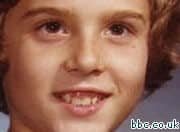The heartbreaking story of a baby boy whose parents were persuaded by an academic to raise him as a girl ended in deep depression and his eventual suicide.
The traumatic events were re-told in a BBC documentary which revealed that the troubling case had been falsely hailed as a “success” in academic and medical papers.
Healthy twin boys Bruce and Brian Reimer were born in Canada in 1965, but at seven months old they began having problems urinating.
Catastrophic
Doctors told the boys’ parents that a simple circumcision would fix the problem, but the routine operation turned out to have catastrophic consequences.
Instead of using a blade, surgeons used a faulty cauterising needle which malfunctioned, and the surge in current completely burned off Bruce’s penis.
Bruce’s devastated parents were unclear about what they should do, but then they were introduced to Dr John Money, a psychologist specialising in sex changes.
Experiment
Dr Money believed that gender was a result of social constructions rather than nature and saw Bruce as an ideal experiment to test his theory.
He convinced Bruce’s parents, Janet and Ron Reimer, to raise him as a girl alongside his twin brother. Key to the experiment was that under no circumstances could his parents reveal that Bruce was ever a boy.
So at 17 months Bruce became ‘Brenda’, and four months later the first surgical step was taken with castration.
Suicidal
By the time the twins were aged nine Dr Money was convinced his theory had been proved correct and he wrote medical papers revealing his findings, although he referred to Bruce as the John/Joan case to conceal his identity.
But four years later when ‘Brenda’ reached puberty the child became suicidal.
“I could see that Brenda wasn’t happy as a girl,” Mrs Reimer remembered in an interview years later.
Lonely
“She was very rebellious. She was very masculine, and I could not persuade her to do anything feminine. Brenda had almost no friends growing up. Everybody ridiculed her, called her cavewoman.
“She was a very lonely, lonely girl.”
Faced with their daughter’s depression they did the one thing Dr Money said they could never do – they told ‘Brenda’ the truth that he was in fact male.
Within weeks ‘Brenda’ had chosen to revert back to identifying himself as a male and changed his name to David.
Untrue
He had reconstructive surgery and eventually married and became stepfather to three children.
But David later found that his deeply traumatic story was being hailed a “success” in academic papers, and being used to influence the decision of families in similar situations.
“He had no way of knowing that his case had found its way into a wide array of medical and psychological textbooks that were now establishing the protocols for how to treat hermaphrodites and people who lose their penis,” said John Colapinto, a journalist for the New York Times who uncovered David’s story.
Depressed
“He could hardly believe that this was out there as a successful case and that it was affecting others like him.”
David became increasingly depressed in his 30s. He had separated from his wife, lost his job and in 2002 his brother died from a drugs overdose.
Two years on in May 2004 David committed suicide.
Counselling
This tragic story is likely to concern those who warn that gender dysphoria is a psychological problem, not a physical one.
Earlier this month a man who underwent sex change surgery to look like a woman – then changed back – said the NHS should halt all sex change operations.
Charles Kane, who spent £100,000 on operations to make him look like a woman, says he needed counselling, not surgery.
Deluded
“Based on my own experiences, I believe sex-change operations should not be allowed, and certainly not on the NHS”, he says.
Mr Kane says: “People who think they are a woman trapped in a male body are, in my opinion, completely deluded. I certainly was.
“I needed counselling, not a sex-change operation.”
He adds: “In many ways I see myself as a victim of the medical profession.”
Mutilated
In 2002 doctors from the NHS Portman Clinic – an internationally acclaimed centre – stated that after surgery, “what many patients find is that they are left with a mutilated body, but the internal conflicts remain”.
Many transsexuals regret their decision to live in the opposite sex. A Home Office report on transsexualism, released in April 2000, said: “Many people revert to their biological sex after living for some time in the opposite sex”.
And in 2007 a leading psychiatrist for gender dysphoria, Dr Russell Reid, was found guilty of serious professional misconduct by the General Medical Council (GMC).
The tribunal concluded that the doctor had acted inappropriately and not in the best interests of his patients after complaints that he had rushed five patients into hormone treatment and sex change surgery without properly assessing them.

